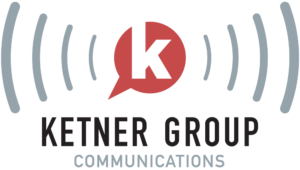2017 marked a turning point for the retail industry with Amazon’s bold acquisition of Whole Foods, which immediately turned the grocery industry upside down. It gave the e-commerce giant a powerful brick and mortar presence that it’s now leveraging with free two-hour delivery of Whole Foods groceries for Prime shoppers.
Will 2018 be similarly remembered as the healthcare industry’s “Amazon moment?” The recent announcement of a health alliance between Amazon, Berkshire Hathaway and JPMorgan Chase has the potential to reshape healthcare in tantalizing ways. Because Amazon is partnering with two other corporate giants, it adds credibility to what could become a blueprint for healthcare innovation.
While Amazon, Berkshire Hathaway and JPMorgan Chase are initially focused on creating a healthcare company for their own employees, they’re thinking big. JPMorgan Chase CEO Jamie Dimon said in a statement that the joint effort could eventually benefit all Americans. And as is the case with anything Amazon does, it raises questions about Amazon’s next moves.
As The New York Times reported, “the announcement touched off a wave of speculation about what the new company might do, especially given Amazon’s extensive reach into the daily lives of Americans — from where they buy their paper towels to what they watch on television. It follows speculation that the company, which recently purchased the grocery chain Whole Foods, might use its stores as locations for pharmacies or clinics.”
The companies said they will “initially focus on using technology to simplify care,” which means they will draw heavily on Amazon’s core strengths in technology and data. Given Amazon’s track record of disrupting every business it has ever touched, plus the power of partners such as JPMorgan Chase and Berkshire Hathaway, it’s easy to imagine huge disruptions in an industry that’s hungry for technology innovation.
In fact, Health Data Management recently reported that healthcare organizations will increase their healthcare information technology (IT) spending by 10 percent in 2018, according to Forrester Research. Specifically, the use of cloud computing, an Amazon expertise, is growing rapidly in healthcare, as the cloud model offers significant advantages in security, ease of deployment and flexibility. AI spending is on the rise, too, along with predictive and prescriptive analytics.
While Amazon is the 800-pound gorilla of technology and possibly healthcare innovation, there’s plenty of action among startups, too. For example, one of Ketner Group’s clients, Birdzi, just announced a unique partnership with ScriptSave, the provider of prescription drug saving programs at 62,000 U.S. pharmacies. Together, the companies are launching a new WellRX Personalized Wellness program using Birdzi’s platform for digital customer engagement. The program helps grocery shoppers make healthier choices by offering personalized product recommendations and offers on products that are beneficial to the shopper’s health and well-being based on specific health conditions, allergies, food or lifestyle preferences. It’s an intriguing alliance that brings together grocery stores, pharmacies and drug companies.
Given the sad state of the U.S. healthcare industry – it’s ranked worst among 11 developed nations and spends the most on healthcare – there is plenty of room for improvement from power players like Amazon as well as innovative startups.
Will 2018 indeed be remembered as healthcare’s Amazon moment? I certainly hope so. Because while the Amazon-Berkshire Hathaway-JPMorgan Chase alliance may be the primary signal of disruption in the industry right now, it’s only one of many – and hopefully we’ll all see the benefits in the not-too-distant future.
